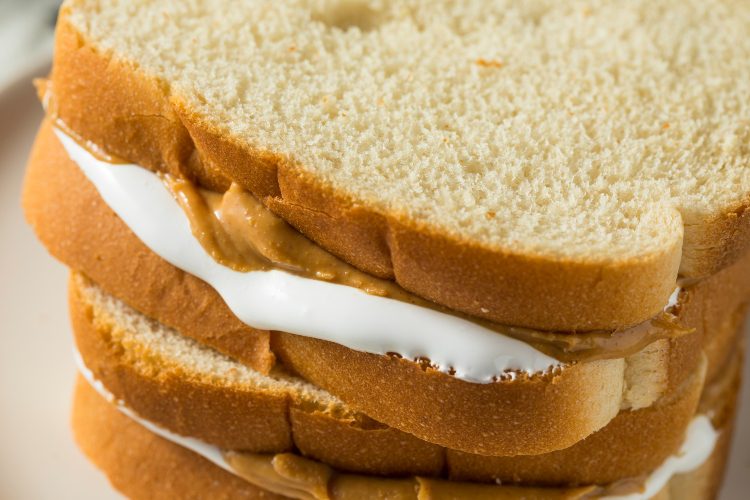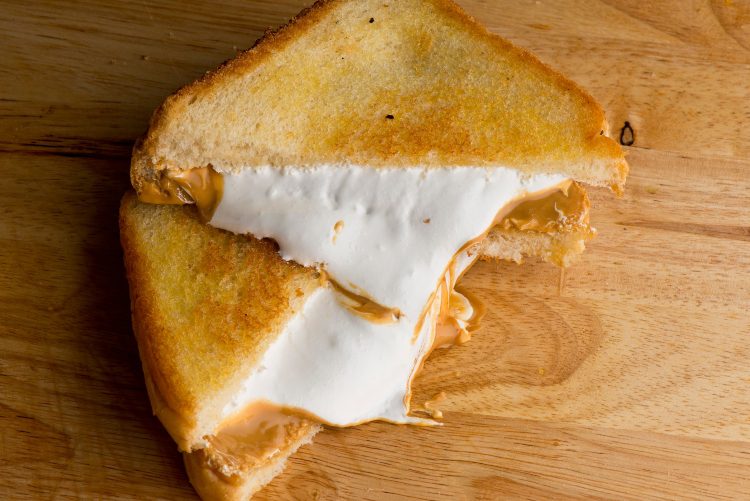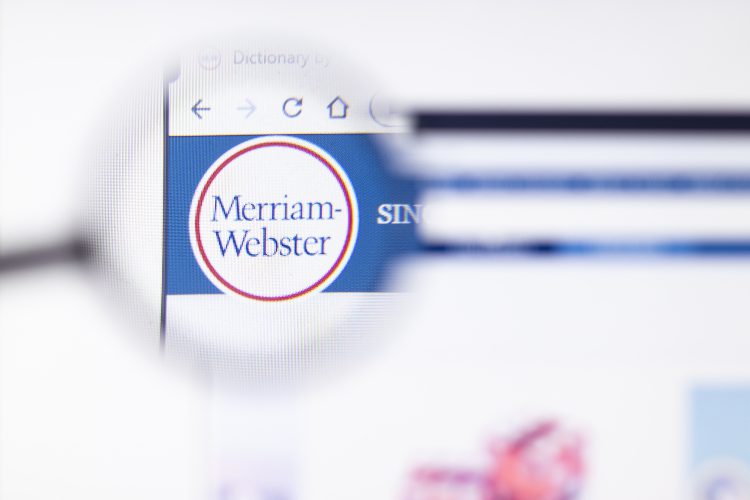
Brent Hofacker/Shutterstock
Of course, everyone knows, the English language changes over time. New words are added to the dictionary, others are taken out. However, this time around, the word might surprise you. "Fluffernutter," the classic New England sandwich of peanut butter and marshmallow flush, has entered the dictionary. That's right!
The Story of the Fluffernutter

Marie Sonmez Photography/Shutterstock
Don't know about the fluffernutter? Well, officially, according to the Merriam-Webster Dictionary, "a sandwich made with peanut butter and marshmallow crème between two slices of white sandwich bread." However, ask any New Englander, and they'll tell you the sandwich means much more to them. It all started with a man named Archibald Query from Somerville, Massachusetts. In 1917, he invented marshmallow fluff and started selling it to his neighbors. Just a year later, a fluffernutter recipe appeared in a grocery store catalog!
Eventually, Query sold the recipe to two lucky graduates from Swampscott High School, H. Allen Durkee, and Fred L. Mower, for just $500! Durkee and Mower started selling the product where it gained "a reputation among local housewives that eventually placed Fluff onto local grocers shelves," per the official Fluff website. By the '50s, the graduates opened a Fluff factory and warehouse in Lynn, Massachusetts. And the company remains there to this day! Meanwhile, the fluffernutter now ranks as the most popular sandwich in Massachusetts, according to many polls. Somerville even hosts an annual Fluff Festival each year!
So, it makes sense that fluffernutter ended up in the dictionary. It's quite the regional delight! Of course, that's far from the most interesting word added to the dictionary in recent years...
Many Other Words In The Merriam-Webster Dictionary

Postmodern Studio/Shutterstock
What are some of the other words that have ended up in the dictionary recently? You will not believe the list! Over the past five years, a whopping 454 words have been added. That's right! For instance, "dad bod," which is "a physique regarded as typical of an average father," has been added. Others also include deplatform, horchata, chicharron, goetta, air fryer, ghost kitchen, wiener roast, dine-in, and curbside pickup/curbside delivery.
How does a word end up in the dictionary? Well, according to Merriam-Webster, they will consider a word if most people "agree that it means the same thing." The more people use words and the more it spreads, the better the chance of it ending up in the dictionary editors and lexicographers. They do kindly ask that "if your toddler nephew invented a great word that the English language simply can't do without, don't write to [them] to recommend that it be added to the dictionary." Instead, "use it!"
And now, people and students can use fluffernutter without fearing that it's not a "real word." So, chow down on some delicious fluffernutters to celebrate!
Sources: Merriam-Webster Dictionary, MSN, The Takeout




